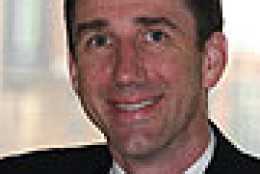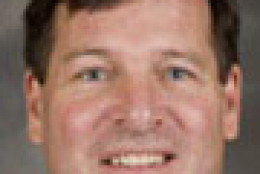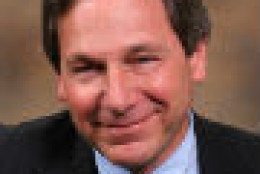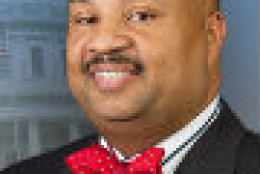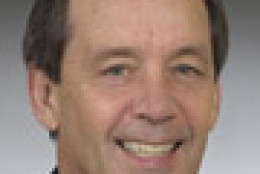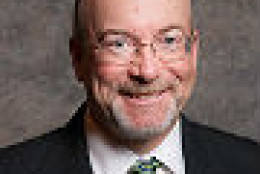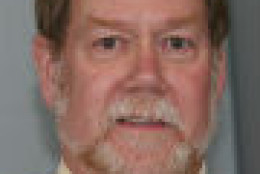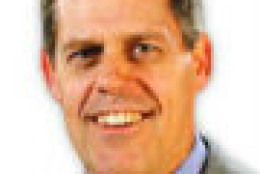Hubbard Radio Washington DC, LLC. All rights reserved. This website is not intended for users located within the European Economic Area.
On Air: Federal News Network
Radio Interviews
-
"Big data," "data to decisions," and "data analytics" are all big buzz words in government at the moment as agencies try to harness the power of computing to leverage the information they already collect into better decision making. But in most cases, the data itself isn't worth much unless experienced people combine it with their own judgment. Dan Saaty is the chief technology officer and co-founder of Decision Lens, a Virginia company that helps crunch numbers for organizations ranging from intelligence agencies to NFL franchises. He said on In Depth with Francis Rose if organizations want to use data to help guide their decisions, the first thing they need to do is set priorities.
July 10, 2014 -
The federal government is hiring more veterans than ever before. But overall, the picture is grim. Hiring across agencies has dropped by 46 percent since 2009. Tim McManus is vice president for Education and Outreach at the Partnership for Public Service. He told Federal News Radio's Shefali Kapadia about his new analysis of the numbers. Read Shefali's related article.
July 10, 2014 -
Ready or not, here it comes. The Internet of Things, that is. The idea is simple: when all sorts of objects have IP addresses and access to wireless networks, you can measure almost anything. As a practical matter, the Internet of Things creates very big data sets that are hard to handle from a network, management and analytics perspective. Anthony Robbins, vice president of federal for Brocade, joined Tom Temin and Emily Kopp on the Federal Drive with advice.
July 10, 2014 -
The Federal Newscast is a daily compilation of the stories you hear Federal Drive hosts Tom Temin and Emily Kopp discuss throughout the show each day. The Newscast is designed to give FederalNewsRadio.com users more information about the stories you hear on the air. In today's news, IRS officials may have communicated via instant message, and the House moves to block Fish and Wildlife rules on the sale of ivory.
July 10, 2014 -
A major war contractor is expecting a $45 million check from the U.S. government. A military appeals board has sided with Kellogg Brown & Root in its quest to get the government to reimburse it for security in Iraq. KBR paid out of its own pocket for private guards to protect convoys carrying supplies to the U.S. military. Procurement Attorney Joe Petrillo joined Tom Temin and Emily Kopp on the Federal Drive to take a closer look at the five-year battle in this week's Legal Loop.
July 10, 2014 -
When it comes to critical infrastructure cybersecurity, White House policy has federal agencies and the private sector joined at the hip. So it matters to the federal government how good the private sector is at cyber. Unisys and the Poneman Institute surveyed companies who operate critical infrastructure. The picture isn't great. Mark Cohn, the chief technology officer of Unisys Federal Systems, joined Tom Temin and Emily Kopp on the Federal Drive to discuss the results of the survey.
July 10, 2014 -
The Food and Drug Administration is trying to harness the data in electronic health records to help develop better medicine. In a pilot program, it regularly surveys 18 large health care organizations. Right now, it's mining records and claims data from more than 150 million patients nationwide. Janet Woodcock is director of the FDA Center for Drug Evaluations and Research. She joined Tom Temin on the Federal Drive to explain how the pilot, known as Mini-Sentinel, works.
July 10, 2014 -
For the Department of Homeland Security, making its 22 components' radio systems interoperable with one another has been an objective since the department was created in 2003. But today, DHS still can't account for all of its communications assets -- let alone get them to talk to each other. Last night, the House passed legislation designed to get things moving. Rep. Donald Payne (D-NJ) is the ranking member of the House Subcommittee on Emergency Preparedness and the prime sponsor of the DHS Interoperable Communications Act. He explained the details of the bill on In Depth with Francis Rose.
July 09, 2014 -
A new performance award strategy could rise from the ashes of a now-defunct pay system at the Defense Department. DoD tried to replace the General Schedule system with a National Security Personnel System back in the mid-2000s, but the White House repealed it two years ago. Bob Tobias is Director of Key Executive Leadership Programs at American University. He was part of a Task Force that tried to improve the system back in 2009. He said one bright spot in the system could be the key to building a new performance culture across the federal government on In Depth with Francis Rose.
July 09, 2014 -
The technical name for one of the Army's communications networks is Warfighter Information Network-Tactical Increment Two. But some soldiers prefer to call it their digital guardian angel. Another calls it the holy grail of communication. Now one of the creators of the Army's WIN-T system is receiving prestigious recognition for his role in its creation. Patrick DeGroodt is Deputy Project Manager for the Department of the Army. He's a Service to America medal finalist in the National Security and International Affairs category. He explained the creation process on In Depth with Francis Rose. Read a Q&A with DeGroodt.
July 09, 2014 -
Industry needs to be "more creative and bold" when it comes to helping agencies solve their biggest challenges, says AT&T executive Casey Coleman, the former chief information officer at the General Services Administration.
July 09, 2014 -
Year two of the Affordable Care Act is underway with open enrollment starting Oct. 1. But the Centers for Medicare and Medicaid Services is already working to fix a big problem with the federal health insurance marketplace. The Health and Human Services inspector general found problems in verifying the data people used to enroll, producing inconsistencies that slowed down enrollment. Russ Hereford is deputy regional inspector general for HHS. He explains to Tom Temin on the Federal Drive how extensive the problem is.
July 09, 2014 -
ACT-IAC is a potent force in the federal information technology market. With hundreds of companies and thousands of people, it's been sponsoring conferences, seminars, studies and even charity events for nearly a quarter century. Ted Davies is the new executive vice chairman of ACT-IAC. His day job is president of Unisys Federal. He joined Tom Temin on the Federal Drive to talk about his new role.
July 09, 2014 -
The Privacy and Civil Liberties Oversight Board has released a thorough report on how federal agencies, mainly the National Security Agency, track foreigners' internet communications. The board found the surveillance, under Section 702 of the Foreign Intelligence Surveillance Act, to be legal. Former White House Privacy Chief, Peter Swire, joined Tom Temin on the Federal Drive with his perspective on its findings.
July 09, 2014


